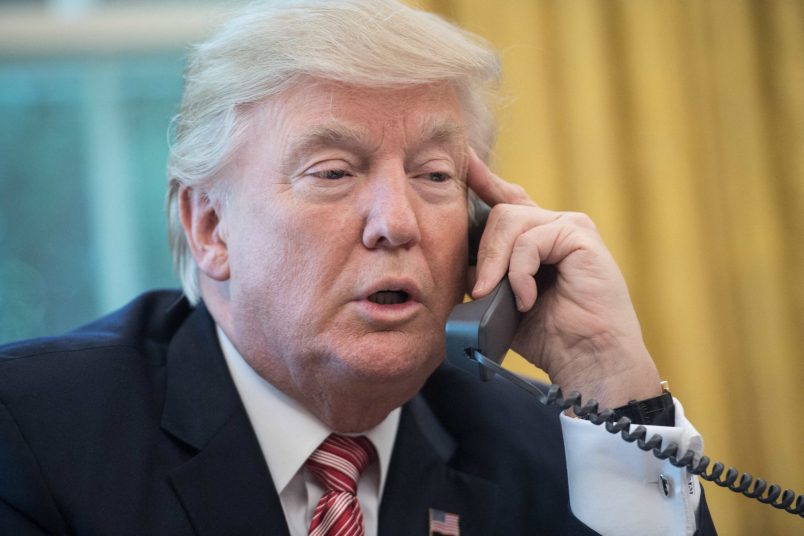I wanted to note two points about possible Trump defenses that haven’t so much been ignored by legal experts as perhaps simply assumed and thus left unstated. It’s worth stating them explicitly.
We’ve discussed many times the kind of reality distortion field that exists around Donald Trump. When Trump is caught red-handed, which is frequently, we’re routinely hit with the question of whether Trump really knew that what he was doing was wrong or illegal or whether it’s possible that he might really have thought his lie was true. Why he should be accorded this extraordinary accommodation is never really explained clearly or adequately. But it’s part and parcel of the world of Trump. Rather like those old wives’ tales or urban legends about kids raised by wolves or snakes or other wild creatures and thus not given the acculturation to know how to live in human society, we’re supposed to accept that Trump somehow lacks the cognitive preparation or experience to follow the law.
Today that means focusing on whether Trump really believed he won the 2020 election. Analysts noted yesterday that aside from a few offhand remarks in which Trump seemed to admit he lost the election, Smith’s case rests mostly on just how many of Trump’s advisors told him that he’d lost and that his plans to undo the result were either illegal, based on falsehoods or wouldn’t work.
But here’s the thing. Prosecutors don’t need to prove what Trump believed. That’s in part because truly proving belief is a fool’s errand since we are fundamentally stuck with the self-serving testimony of the person whose state of mind we’re trying to discern. Good liars lie consistently. Pathological liars lie in a way that they even partly convince themselves. As we know from all our experience, people have a great ability to believe what they want to believe or what is helpful for them to believe. The standard isn’t what someone claims they believed but whether it was a reasonable belief.
It’s peak Trump to lead the criminal justice system around by its nose with ludicrous claims about what he believed. But the law provides a clear way around this: what was it reasonable to believe?
The other point is that your belief isn’t all that matters. Let’s say Trump truly believed he was the winner of the election. That would fully entitle him to exhaust every judicial remedy to vindicate that belief. But it still wouldn’t entitle him to inspire a violent mob to ransack the Capitol, to threaten the life of his vice president or to take numerous steps to halt the formal counting of electoral votes. Civic life is filled with good faith disagreements. We have courts to settle those disagreements. None of them provide a justification, other than perhaps as a mitigating factor at sentencing, for taking the law into your own hands.
Let’s take a more plausible example. In 2000, Al Gore clearly believed that he was the legitimate winner of the 2000 presidential election. He wasn’t crazy. Probably half the country believed the same thing. But a court decided the case against him. To point to the current claims of various Trump supporters, his free speech rights entitled him to claim he was the legitimate president, that he’d been robbed by the Supreme Court. His free speech rights entitled him to create all sorts of politically destabilizing commotion. But no one would imagine he had any right to use the administration’s powers to block the count of the electoral votes. Remember that Gore was in the same position Pence was in: as sitting Vice President he was responsible for overseeing the ministerial counting of the electoral votes. But he had no right to try to force his beliefs into reality by violating the law.
We can imagine various permutations of this question. But they all come down to the same thing. The law doesn’t require us to delve into the unplumbable mysteries of Donald Trump’s degenerate brain. His state of mind is relevant. But he doesn’t get a pass because he claims, with himself the only potential witness, that he believed ludicrous things. It has to be a reasonable belief. And even if he did have such a belief, even a reasonable belief, that is still no justification for violating the law or otherwise trying to obstruct the peaceful transfer of power.


